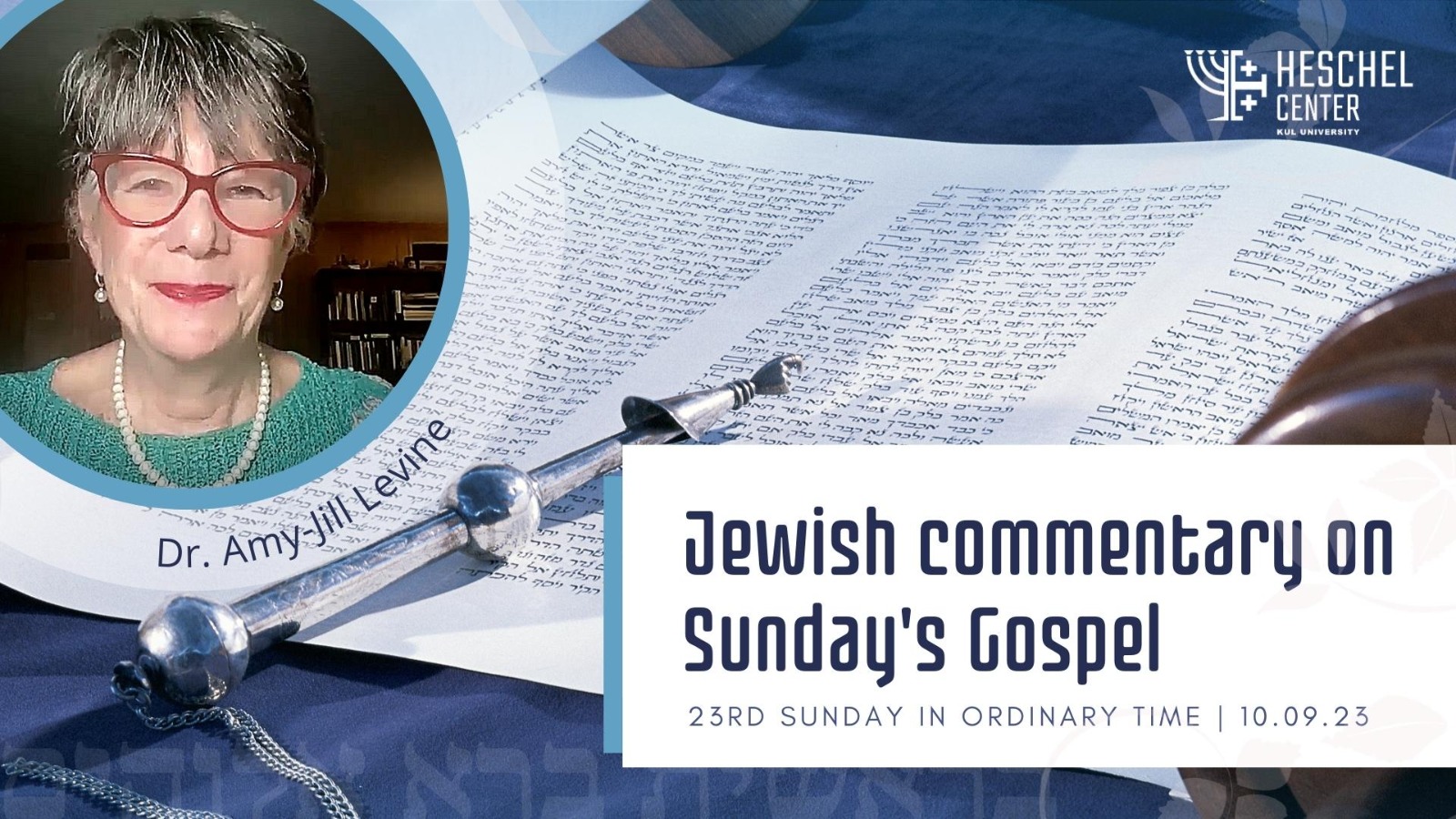Forgiveness which may do harm to the victim and the abuser


Photo credit_KUL Heschel Center
It sometimes happens that the offending brother or sister shows no remorse, takes no responsibility for the harm done, and makes no effort to repair the damage. Then forgiveness may not be healing but dangerous both for the individual who has been abused and for the community. This is how Jesus’ indications on forgiveness and care for the conversion of a brother or sister is commented on by Dr. Amy-Jill Levine, professor of the New Testament and Jewish Sciences, the first Jewish woman to lecture on the New Testament at the Pontifical Biblical Institute in Rome, in her commentary for the Catholic University of Lublin Heschel Center for the Sunday, September 10.
In the Gospel, Jesus urges us to an offending brother or sister “seventy times seven”. At the same time, His words indicate that forgiveness is as crucial as the genuine care for the repentance of the person inflicting harm. Christ never belittles the magnitude of evil and never says that nothing has happened. “Jesus teaches that anyone who puts a stumbling block before community members, whom he calls ‘little ones’ – the expression ‘little ones’ suggests people who need protection – would be better off drowned,” stresses–Dr. Amy-Jill Levine.
Since “the assembly is where the vulnerable are to be protected, not forced into the presence of their unrepentant abusers”, Jesus offers three pointers which offer the abuser a chance for repentance. The first step is to correct the offending brother or sister privately: its intent is reform, not shame. “For Matthew, sin should not lead to communal hate; it should lead to communal correction,” explains the professor of the New Testament and Jewish Sciences.
If the first step has proven unsuccessful, Matthew advises that the abuser be confronted by two or three witnesses. “Public humiliation is still avoided, but the seriousness with which the assembly takes the offense is reinforced. Again, members of the assembly encourage the offending brother or sister to repent,” indicates Dr. Amy-Jill Levine.
Once the second attempt has failed, the community must be advised of the offence and urged to talk with the abuser. “Should this third attempt fail, Matthew instructs, ‘Let such a one be to you as a gentile and a tax collector’,” highlights Dr. Levine. Offenders who remain adamantly unrepentant are to be removed from the assembly, but they are still brothers and sisters. “By treating the abuser, the sinner, as a gentile and a tax-collector, the community always holds out the hope for repentance. By connecting the concern for forgiveness to community discipline, the Gospel protects those who have been sinned against,” sums up Levine.
A full text of the commentary on the Heschel Center of the Catholic University of Lublin website:
https://heschel.kul.pl/forgiveness-which-may-do-harm-to-the-victim-and-the-abuser,art_103931.html
The life of St. Peter – love that overcame fear >>>
Ties bound on earth and in heaven >>>
Jesus points to pagan woman as example of faith >>>
The calming of the storm on the lake in the eyes of the first Jewish listeners >>>
The mountain of transfiguration – a place of my being with God >>>
Sometimes you have to go on a long journey to find the treasure hidden within yourself >>>
Revelation reserved for the foolish, or the provocation of Jesus >>>
Jesus on the Jewish value of spiritual service to the righteous >>>
The New Torah and Jesus as the new Moses and the new Joshua >>>
The day is short, the work is plentiful, and the people are insolent, and the reward is great >>>
Eucharist – New Manna, God present here and now >>>
Hebrew Commenary to the Gospel: Three Names of One God >>>
The Pentateuch’s prophets and Moses predicted the outpouring of the Holy Spirit >>>
The end which is a new beginning – about an ever-present God >>>
Paraclete – three meanings of the Greek word hidden in the Old Testament >>>
The first covenant of God with the Jews is still valid >>>
Selective listening to Scripture – the mistake of the disciples at Emmaus >>>
God’s mercy inscribed on the pages of the Old Testament >>>
After his resurrection, why did Jesus first appear to women? >>>
Passover – the celebration of freedom and faith >>>
The more we know about Passover, the more we can understand the Last Supper >>>
Why did Jesus let Lazarus die? >>>
Who sinned, the blind man or his parents? >>>
How did the seventh man change the life of the Samaritan woman? >>>
Who was transfigured on Mount Tabor – the disciples or Jesus? >>>
The Desert – A Blessing or a Curse? >>>
KUL Heschel Center: Misunderstandings over the „eye for an eye” principle >>>
Law, Prophets, iota – we need to examine the context to understand the meaning of Jesus’ words >>>
Heschel Center KUL: What do salt, light and the city on a mountain mean to us? >>>
Heschel Center KUL: Why did the disciples, becoming „fishers of men,” abandon their nets? >>>
Hebrew Commentary to the Sunday Gospel excerpt – 2nd Sunday in Ordinary Time; Year A >>>
Jewish Commentary on the Gospel >>>
Hebrew commentary on the first Sunday of the New Year Gospel >>>
Jewish commentary on the Christmas Gospel >>>
Hebrew commentary on the Gospel for the Fourth Sunday of Advent >>>




Dodaj komentarz